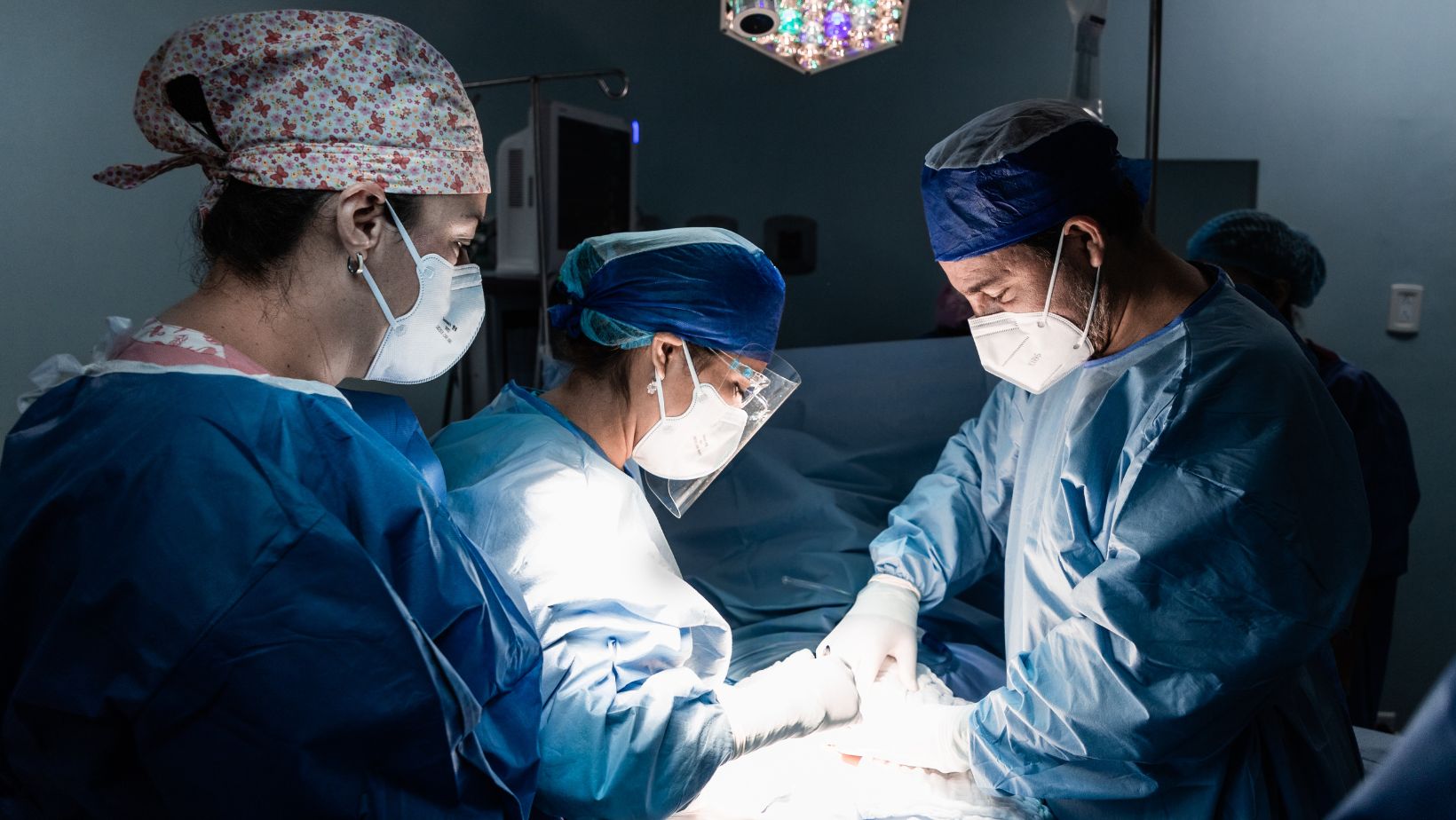
Hernia surgery is a common medical procedure undertaken to correct hernias, which occur when an organ or fatty tissue squeezes through a weak spot in a surrounding muscle or connective tissue called fascia. Most frequently, hernias occur in the abdominal wall. Sometimes, if left untreated, a hernia can lead to serious complications.
By understanding the hernia repair process, you can manage expectations and prepare effectively for the procedure. But how is hernia surgery performed?
Read on to learn what you should expect from the procedure.
Understanding Hernias And The Need For Surgery
A hernia can appear in several forms, each identified by its location and specific characteristics. These include:
- Inguinal Hernias: These are the most common type, occurring in the groin area when the intestine or bladder protrudes through the abdominal wall.
- Femoral Hernias: Less common and typically found in women, these hernias appear just below the groin.
- Umbilical Hernias: These occur near the belly button, often in infants, but can also affect adults.
- Hiatal Hernias: This type involves part of the stomach pushing into the chest cavity through an opening in the diaphragm. Hiatal hernia natural treatment , such as dietary modifications and posture adjustments, may help alleviate symptoms in some cases.
The decision to proceed with hernia surgery is influenced by the hernia’s size and the intensity of symptoms, such as pain and discomfort, which intensify during physical activities like lifting, coughing, or bowel movements. Critical cases may also involve a hernia becoming strangulated or incarcerated, leading to a potentially life-threatening situation where the blood supply to the intestine is obstructed. This requires emergency surgical intervention to prevent further complications.
Preparing For Hernia Surgery
Before hernia repair surgery, a comprehensive evaluation is necessary. This involves a physical examination and imaging studies, such as an ultrasound or a CT scan, to determine the hernia’s size and content. You’ll receive instructions on preparing for surgery, including fasting requirements and adjustments to medication schedules. It’s crucial for you to disclose their full medical history to avoid complications during the surgical procedure.

Therefore, if you’re planning to undergo hernia surgery Singapore or similar locations, consulting professionals can be an excellent idea. These specialized medical professionals employ modern techniques and follow stringent protocols to ensure safety and effectiveness. The choice of surgical technique often depends on your condition and the surgeon’s expertise.
Types Of Hernia Surgery
Hernia repair can be performed using different techniques, with the main types as follows:
Open Surgery
In open hernia repair, a single long incision is made in the groin. If the hernia is bulging out of the abdominal wall, the surgeon may push it back into place. If the hernia is down in the groin, the surgeon will make an incision to open the area, then move the hernia back and strengthen the wall with stitches or a mesh. This method can be more invasive and may require a longer recovery period.
Laparoscopic Surgery
Laparoscopic surgery is a minimally invasive technique that uses several small incisions and a laparoscope (a thin, lighted tube with a camera) to repair the hernia. The surgeon operates outside the body, watching the procedure on a video screen. This method generally results in less postoperative pain and a quicker return to daily activities.
The Surgical Procedure
Regardless of whether the hernia surgery is performed using an open or laparoscopic technique, the procedure follows certain essential steps. Initially, anesthesia is administered to ensure you remain pain-free and comfortable throughout the operation. The surgeon then carefully isolates the hernia sac, which encloses the protruding organ or fatty tissue. Depending on the situation, the content is either removed or repositioned back into its proper place within the abdominal cavity.
To prevent recurrence and support the weakened area, the surgeon reinforces the abdominal wall with synthetic mesh or sutures, enhancing the structural integrity and aiding the healing process.
Recovery And Postoperative Care
After hernia surgery, it’s common for you to experience varying levels of pain and discomfort, which can be effectively managed with prescribed pain relief medications. The duration of recovery can differ greatly among individuals; many can return home either on the same day or the following day after the procedure. Adhering to the surgeon’s postoperative instructions is crucial for a smooth recovery. These instructions typically cover proper wound care, appropriate diet adjustments, and restrictions on physical activities.

Specifically, you’re advised to avoid engaging in strenuous activities and lifting heavy objects for a period, often spanning several weeks, to prevent complications and ensure optimal healing.
Risks And Considerations
Hernia repair, like any surgical intervention, involves inherent risks including potential infections, persistent pain, and the possibility of hernia recurrence. The likelihood of encountering these complications is influenced by several factors such as your overall health condition, the specific type of hernia being treated, and the surgical method employed.
Furthermore, achieving long-term success in hernia surgery outcomes heavily relies on your compliance with postoperative care guidelines and regular follow-up visits with your healthcare provider. Such diligent post-surgical care is essential to monitor healing progress, manage any emerging issues, and prevent long-term adverse effects.
Conclusion
Hernia surgery is a safe and effective way to alleviate the discomfort of hernias and prevent further complications. With advancements in surgical techniques, most patients experience significant improvement in symptoms and quality of life post-surgery. By adhering to prescribed medical advice and care protocols, you can look forward to a successful recovery and a return to normal activities.











